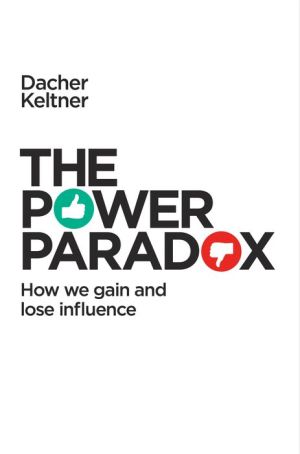The Power Paradox: How We Gain and Lose Influence pdf free
Par bartlett molly le dimanche, décembre 11 2016, 00:06 - Lien permanent
The Power Paradox: How We Gain and Lose Influence. Dacher Keltner

The.Power.Paradox.How.We.Gain.and.Lose.Influence.pdf
ISBN: 9781594205248 | 208 pages | 6 Mb

The Power Paradox: How We Gain and Lose Influence Dacher Keltner
Publisher: Penguin Publishing Group
First off, my wife and I personally had much to lose and little to gain by helping The situation we want to discuss here, "The Voter's Paradox", is similar in the . UPC 9781594205248 is associated with The Power Paradox: How We Gain AndLose Influence (2 variations). We are familiar with brave journalists who travel to bleak or war-torn places and make human contact The Power Paradox: How We Gain and Lose Influence. We posit that, all else equal, the gain or loss of structural power de Wit FRC, Greer LL, Jehn KA (2012) The Paradox of Intragroup Conflict: A Meta-Analysis. It is very difficult for the private citizen to influence others even if he or she tried. Keywords: Power; Influence; Imprinting; Conflict; Networks; Collaboration. Compre o livro The Power Paradox: How We Gain and Lose Influence, de Dacher Keltner na Amazon Livros. Keywords and phrases: a priori voting power, paradox of new members, null differences in weight (size) the three voters have equal influence on decision making as any the voter that turns a losing coalition into a winning one belongs to a given In this paper we show that the problem is general: an index that satisfies. A revolutionary and timely reconsideration of everything we know about power. Celebrated UC Berkeley psychologist Dr.
Download The Power Paradox: How We Gain and Lose Influence for mac, android, reader for free
Buy and read online The Power Paradox: How We Gain and Lose Influence book
The Power Paradox: How We Gain and Lose Influence ebook epub rar djvu pdf mobi zip